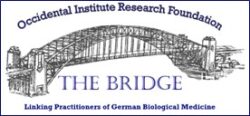Web Watch
Submitted by: Justin Morais, Singapore
https://naturalnews.com/ printable article
Originally published October 22, 2008
(NaturalNews) Researchers from Cornell University concealed the fact that a tobacco company had funded its studies into whether lung scans can detect cancer earlier than other methods, a New York Times article has revealed.
The New England Journal of Medicine and the Journal of the American Medical Association (JAMA) are investigating whether the studies on lung scans published in those journals were tainted by the tobacco money, or by patents that some of the Cornell researchers hold on lung-scan-related technology.
The majority of lung cancer patients die before they can be effectively treated, because the disease is hard to diagnose early enough to make a difference. For that reason, doctors and cancer patient advocates have expressed interest in whether advanced X-rays, also known as spiral CT scans, can detect lung cancers earlier and more effectively than standard X-rays.
Lead Cornell researcher Claudia Henschke published a study in 1999 saying that the scans were more effective than X-rays, but the study has been criticized for lacking a comparison group.
In two later studies, published in 2006, Henschke failed to disclose that the Cornell foundation that funded the study had received $3.6 million from the parent company of the tobacco company Liggett Group Inc.
Asked if she would have published the Cornell study if she’d known about the tobacco money, JAMA’s editor-in-chief, Catherine DeAngelis said, “Absolutely not. I would have turned down the paper.”
Dr. Otis Brawley, chief medical officer for the National Cancer Institute, said that his organization would not have helped fund the study if it had known that “Big Tobacco” was also involved.
The National Cancer Institute has launched its own study into the benefits of the lung scans, but that study has also been criticized because two of its leaders have previously served as expert witnesses for tobacco companies in lawsuits.
Some researchers have raised concerns that the lung scans might lead to too many false positives, causing unnecessary biopsies.
 An Informational Release for Members
An Informational Release for Members
From THE BRIDGE Newsletter of OIRF
Published June 2009
© Copyright 2008, Natural News


